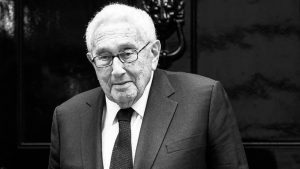Zabiullah Mujahid, the Taliban’s spokesperson, addressed the media for the first time in a decade. This press conference comes a month after the insurgent group seized Kabul. At the press brief, he said that he lived in the Afghan capital right under the nose of his adversaries who considered him a ghost-like figure during the war.
Mujahid is believed to have worked in the shadows for years. He admitted that he studied at the Haqqania seminary in Nowshera in northwest Pakistan. The seminary has been termed as the Taliban University or the ‘University of Jihad’ internationally, news agency PTI reported.
“They (US and Afghan National Forces) used to think I did not exist,” Mujahid told The Express Tribune newspaper in an interview.
“I escaped so many times from their raids and attempts to capture me that they seriously considered that ‘Zabiullah’ was a made up figure, not a real man who exists,” the 43-year-old spokesperson added.
“And yet, I managed to move about Afghanistan freely. I think this perception helped with that,” he explained.
He said that he lived in Kabul for a long time and was right under everyone’s noses. “I roamed the width and breadth of the country. I also managed to have first-hand access to the frontlines, where the Taliban carried out their actions, and up to date information. It was quite puzzling for our adversaries,” the 43-year-old said.
Due to lack of information, there was speculation that the Taliban has more than one spokesperson.
“The US forces would often pay off locals to obtain some information about my whereabouts. Using that information, like I said, they must have launched dozens of intelligence-based operations hoping to find some trace of me,” he said.
He maintained that he never left or try to leave Afghanistan.
Mujahid, who was born in the Gardez district of Paktia province sometime in 1978, said that he specialised in Islamic jurisprudence from the Haqqania seminary in northwest Pakistan.
Others to study at the Haqqania seminary are Sirajuddin Haqqani (acting interior minister), Abdul Latif Mansoor (Water and Energy Minister), Najibullah Haqqani (Telecommunication minister) and Maulana Abdul Baqi Haqqani (Education Minister).
Also Read | Islamic dress, separate classroom: Taliban’s rule for women in universities
Mujahid said he became the spokesperson of the Taliban following the arrest of his predecessor. He also said that he had never seen the Taliban founder Mullah Umar. “But I have worked with Sheikh Mullah Mansoor, and Sheikh Hebatullah,” he said, referring to Mullah Omar’s successors.






